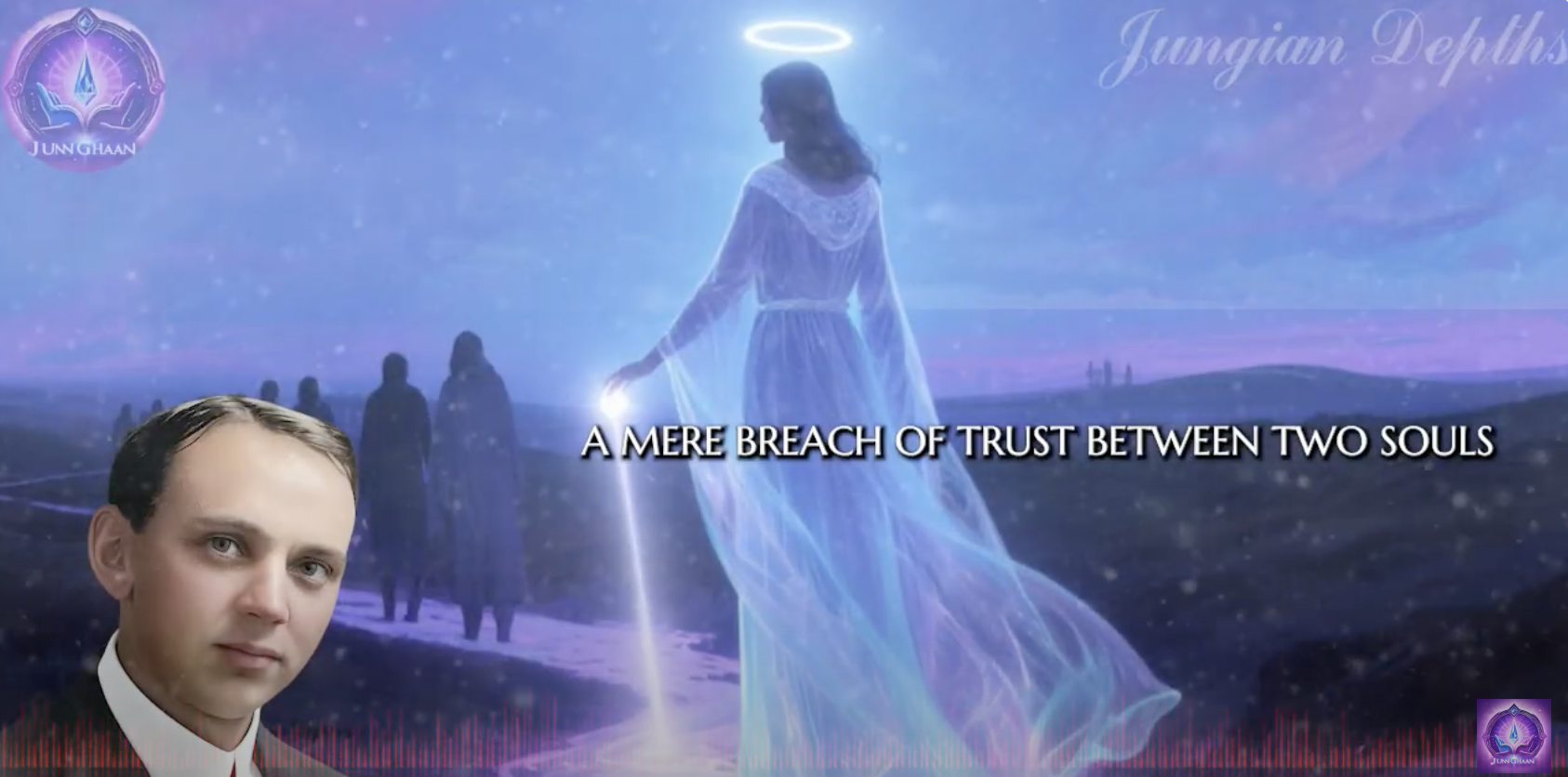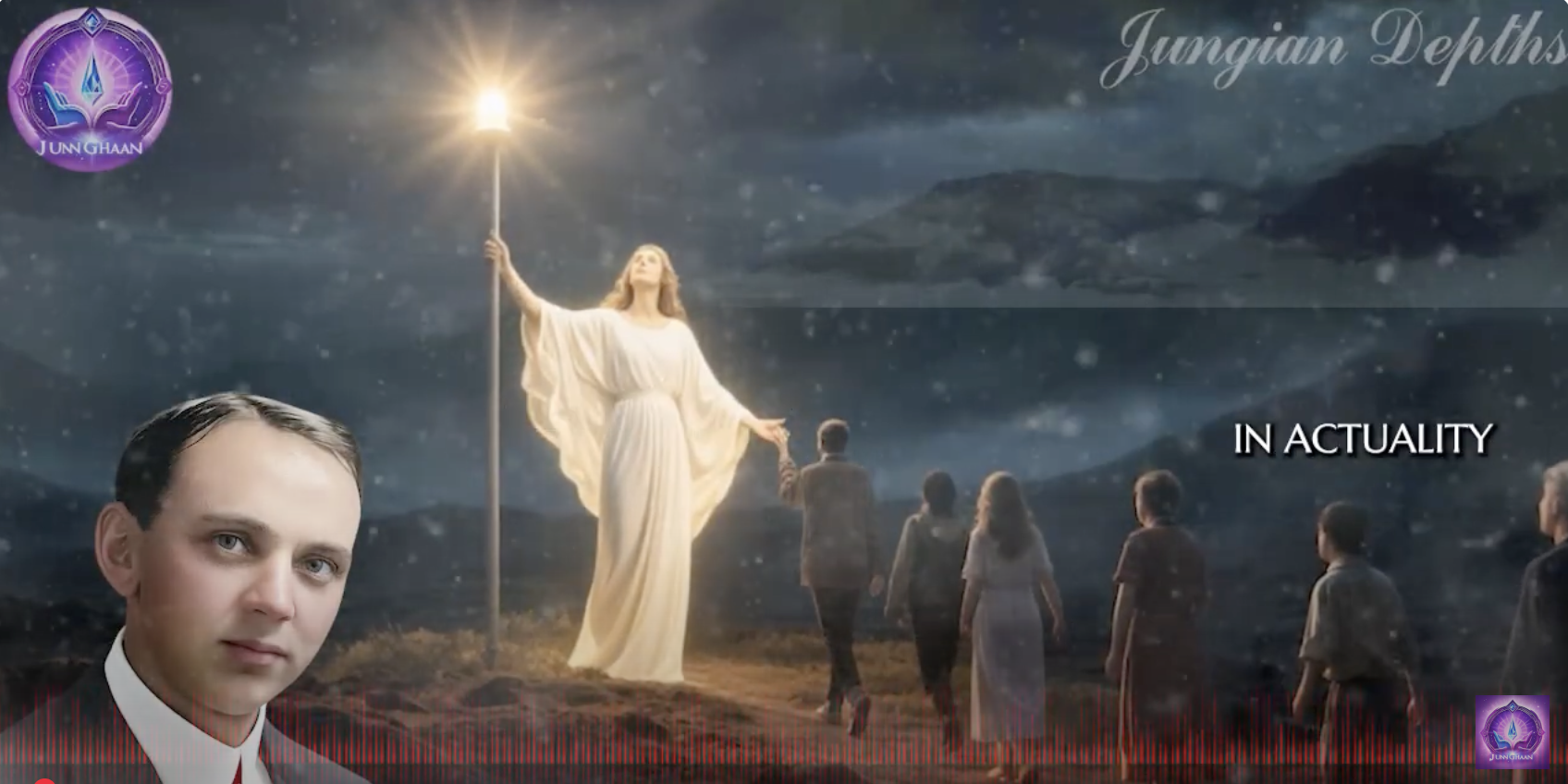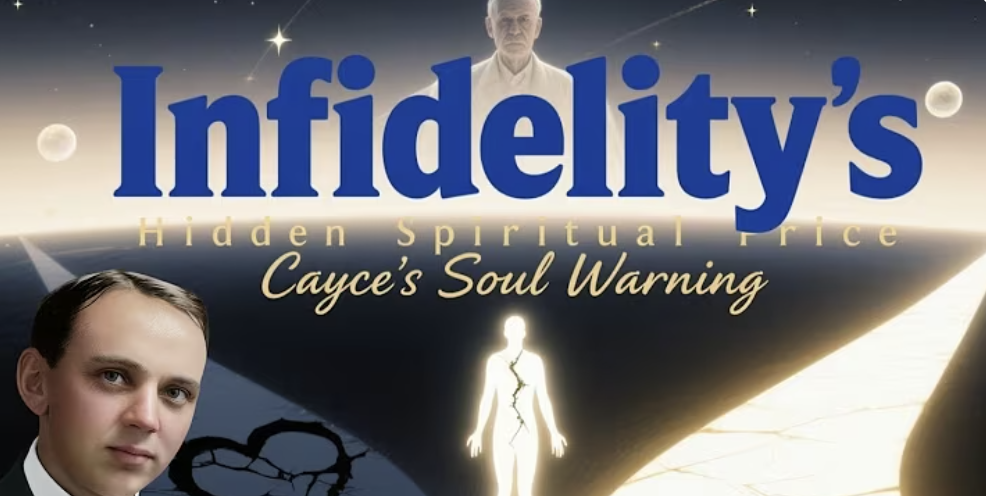Do you ever get the nagging sense that a rough patch in your relationship has roots somewhere deeper than you can explain? Years ago, I was captivated by an Edgar Cayce reading in the hushed archives of Virginia Beach. That was the moment I began to wonder: What if betrayal scars not just our hearts, but our very souls—and those scars echo across centuries? According to Cayce, infidelity’s shadow doesn’t just fall on the present; it stains the tapestry of our soul journey, demanding reckoning and healing far beyond a single lifetime. Let’s dive into the astonishing, uncomfortable, but ultimately redemptive insights Edgar Cayce shared on the true cost—and spiritual cure—of betrayal.
More Than a Broken Heart: Spiritual Wounds From Adultery
Let me take you back to a moment that changed how I see betrayal forever. I had always believed that infidelity was simply a matter of hurt feelings, broken trust, and maybe a shattered marriage. But then I stumbled across the Edgar Cayce teachings—those haunting, detailed readings that have fascinated spiritual seekers for generations. Suddenly, the idea of spiritual wounds from adultery wasn’t just poetic language. It was a living, breathing reality that echoed across lifetimes.
Cayce, often called America’s “Sleeping Prophet,” documented over 14,000 psychic readings. Many of these focused on what he called relational karma. But what struck me most was his insistence that adultery inflicts spiritual wounds that linger across lifetimes. Not just bruised egos. Not just a broken heart. Actual soul scars—deep, energetic imprints that can follow us from one incarnation to the next, shaping our very destiny.
"Adultery inflicts spiritual wounds that linger across lifetimes." – Edgar Cayce reading summary
It’s a chilling thought, isn’t it? According to Cayce, every act of betrayal is more than a momentary lapse. It’s a spiritual injury. The pain isn’t just emotional; it’s woven into the fabric of your soul. These soul scars become karmic debts, unresolved spiritual obligations that demand repayment. And if they’re not healed in this life, they’ll come knocking in the next.
I remember reading about a businessman who came to Cayce, desperate to understand why his relationships kept falling apart. No matter how hard he tried, he found himself trapped in a cycle of mistrust, jealousy, and heartbreak. Cayce’s reading didn’t point to anything in his current life. Instead, it traced the roots of his relationship struggles back to a past life as an Egyptian merchant. There, he’d been unfaithful, betraying not just his wife, but the sacred contract between their souls. The fallout? In his present life, he was paying the price—over and over again.
This story stuck with me. It made me wonder: How many of us are carrying the echoes of old mistakes, mistakes we barely remember? How many of our relationship struggles are really the ghosts of choices made lifetimes ago? Research into Edgar Cayce teachings shows that these patterns are more common than we think. Karmic entanglements and past life indiscretions can shape our current reality in ways we might never expect.
Cayce’s readings are filled with references to spiritual wounds adultery leaves behind. He described betrayal as a kind of spiritual poison, one that seeps into the soul and impedes spiritual growth. It’s not just about the pain of the moment. It’s about the way that pain gets encoded into your very being, showing up as repeating patterns—failed relationships, trust issues, even unexplained loneliness.
But here’s the wild card, the idea that keeps me up at night: Imagine if every act, every choice, was immortalized in your soul. What would you do differently if you knew that a single betrayal could echo through centuries, shaping not just your own life, but the lives of those you love? Would you forgive more easily? Would you think twice before breaking a promise?
Cayce didn’t just leave us with warnings. He offered hope, too. He taught that healing from betrayal—true, soul-level forgiveness—can break the cycle. It’s not easy. It means facing the pain, understanding its spiritual significance, and choosing compassion over bitterness. But according to Cayce, this is how we accelerate our spiritual evolution. This is how we free ourselves from the chains of soul scars karmic debts.
So, the next time you find yourself wrestling with the aftermath of infidelity, remember: you’re not just dealing with a broken heart. You’re tending to a wound that may be older than you realize. And in that work—messy, painful, and utterly human as it is—lies the possibility of true spiritual freedom.
 Energetic Cords, and Soul Contracts" />
Energetic Cords, and Soul Contracts" />Bonds That Don’t Break: Karmic Entanglements, Energetic Cords, and Soul Contracts
I remember the first time I stumbled across Edgar Cayce’s readings on infidelity. I’d always thought of betrayal as a wound—a sharp, personal pain that cut through trust and love. But Cayce’s words opened a door to something far deeper, and honestly, far more unsettling. He described adultery not just as a broken promise, but as a violation of the soul partnership love—a spiritual contract that two souls forge before they ever meet on Earth. When that contract is broken, the consequences echo across lifetimes.
Cayce’s readings reveal a hidden world where karmic entanglements past lives are not just poetic metaphors, but living, breathing realities. He explained that when someone commits adultery, it isn’t just their spouse who suffers. Instead, they forge what he called energetic cords—invisible but potent threads that bind them to their illicit partner. These cords, he warned, can last for centuries, weaving souls together in ways that feel impossible to untangle.
“They forge energetic cords with their illicit partner, and these cords may remain tethered across lifetimes, birthing intricate relationship patterns that appear insurmountable.” — Edgar Cayce reading summary
I can’t help but think of the woman who came to Cayce, haunted by a love she couldn’t shake. She described a magnetic pull to a married man, a connection that felt fated, irresistible. She’d tried to move on, but he kept reappearing in her life, as if some invisible hand kept drawing them together. Cayce’s reading for her was a revelation—and a shock. He told her that this wasn’t the first time their paths had crossed. In fact, in three prior incarnations, this man had been her secret lover, always married to someone else. Their souls, Cayce explained, were caught in a cycle of forbidden attraction, a karmic debt demanding resolution, not pursuit.
Imagine thinking you’ve found your soulmate, only to discover you’re reliving unfinished business from centuries ago. That “love at first sight” moment? Sometimes it’s not new love at all. It’s a karmic replay, an echo from another life, pulling you back into the same old dance. The energetic cords in relationships, as Cayce described, are not easily broken. They bind us, sometimes against our will, until we finally face the spiritual lesson at their core.
Cayce’s teachings go even further. He described how these karmic entanglements create what he called “spiritual static.” This static blocks us from finding true soul partnership love. We get stuck, unable to connect deeply with others, trapped in patterns that seem to make no sense—until we look at them through the lens of past lives and karmic debts. It’s not just about the pain of betrayal in this life; it’s about the soul’s journey to heal wounds that have been festering for centuries.
Research shows that energetic cords in relationships can bind souls karmically, and that cleansing these cords is a vital part of the soul healing process. Cayce urged those suffering from the aftermath of infidelity to seek understanding, not just of their own pain, but of the spiritual story unfolding beneath it. He believed that healing from betrayal was not just about forgiveness in the here and now, but about breaking the chains of karmic debts that keep us tethered to old wounds.
I find myself wondering—how would I handle a connection if I knew it wasn’t free will, but unfinished spiritual business demanding closure? Would I still chase that spark, or would I step back and ask what my soul is really trying to learn? Cayce’s message is clear: relationships are soul contracts. Breaking them doesn’t set us free; it binds us tighter, until we finally choose to heal.
The stories he shared—of people haunted by old loves, drawn into affairs they couldn’t explain—remind me that the heart’s mysteries are rarely simple. Sometimes, what feels like destiny is really a lesson in disguise, a call to break the bonds that don’t break, and finally find peace.

The Road Back: Soul Cleansing, Forgiveness, and Spiritual Immunity
If you’ve ever felt the sting of betrayal, you know the ache isn’t just in the heart—it’s in the soul. I remember reading Edgar Cayce’s words for the first time and feeling something shift inside me. He didn’t sugarcoat the aftermath of infidelity. According to Cayce, the real work begins after the affair ends. “Merely terminating the affair proves insufficient. The individual must embark on what Edgar Cayce termed a soul cleansing to expunge the energetic residue imprinted by the adulterous act.” That line haunted me. It still does.
Cayce’s soul cleansing process isn’t a quick fix. It’s a journey with three distinct steps: honest confession, a period of celibacy, and active service to others. The first step, confession, isn’t just about admitting your wrongs to your partner. It’s about facing yourself—and, as Cayce put it, making a plea for forgiveness to the universal creative force. I’ve seen people resist this, clinging to pride or fear. But research shows that true spiritual healing from infidelity begins with radical honesty, both with ourselves and with the divine.
Next comes celibacy—not as punishment, but as a way to redirect creative energy. Cayce believed that sexual energy, when misused, leaves a spiritual scar. But when we choose celibacy, even for a short period, we reclaim that energy and use it for spiritual elevation. I once met a woman who had spent lifetimes manipulating others, her soul growing numb and armored against real emotion. In this life, she felt nothing—no joy, no pain. It wasn’t until she embraced Cayce’s soul healing meditation techniques, sitting in silence and asking her higher self for guidance, that she began to thaw. The emotional armor she’d built over centuries started to crack, and for the first time, she wept—not out of sorrow, but relief. She was finally healing.
The third step is service. Cayce taught that helping others who have suffered betrayal is a powerful way to cleanse our own wounds. It’s not about martyrdom or self-sacrifice, but about genuine compassion. When we serve, we step outside our pain and become vessels for healing. This is where spiritual immunity is forged—not immunity from pain, but from bitterness and cynicism. Research on forgiveness and spiritual growth supports this: by helping others, we clear karmic debts and build resilience that lasts across lifetimes.
But what about forgiveness? Cayce’s view is radical. Forgiveness isn’t erasure. It’s not pretending the betrayal never happened. It’s a discipline, a spiritual muscle we build over time. He explained that true forgiveness means understanding the betrayal’s role in our soul’s evolution. Sometimes, the hardest truth is that we chose these lessons before we were born. I’ve wrestled with that idea. If meditation revealed your grudge was actually centuries-old, would you forgive differently? Would you see your pain as a teacher, not a punishment?
One story from Cayce’s readings stays with me. A woman, emotionally barren after centuries of manipulation, finally broke through her numbness with meditative soul healing. She realized her current suffering was the echo of ancient wounds. By forgiving—not forgetting, but truly releasing—she began to experience love without fear or control. Her soul, once armored, became open and resilient.
Cayce’s teachings on spiritual healing infidelity are clear: healing is possible, but it demands everything. Confession, celibacy, service, and above all, forgiveness. These aren’t just steps—they’re a way of life, a path to spiritual immunity. When we embrace the soul cleansing process Cayce described, we don’t just heal ourselves. We heal the echoes of our pain across lifetimes. And in that healing, we discover a love that endures, a peace that no betrayal can destroy.
TL;DR: Infidelity, according to Edgar Cayce, wounds far more than just feelings—it can entangle souls, create karmic debts, and derail spiritual growth across many lifetimes. True healing requires deep soul work, courageous forgiveness, and a willingness to see relationships as sacred contracts for evolution.
Hats off to the video titled "You Believe Infidelity Just Breaks Hearts: Edgar Cayce Uncovered a Deeper Spiritual Price" from the Jungian Depths channel. You can check it out here: [Watch the video](https://www.youtube.com/watch?v=8guhCLR9Zzw). This content is shared under a Creative Commons Attribution license, allowing for reuse. It was published by Jungian Depths on YouTube and features a transcript expertly extracted and organized by Ezio Savva using AI technology. This adaptation serves as a valuable resource for educational and spiritual reflection, made possible under the Creative Commons license.



